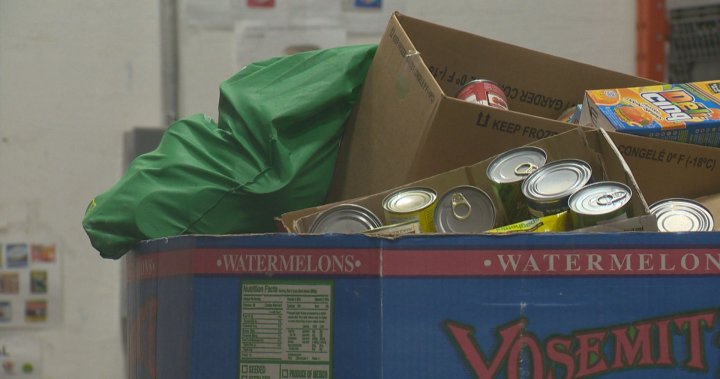Saskatchewan received an overall D- grade in Food Banks Canada’s 2024 Poverty Report Card, indicating that many residents are struggling to keep up with the cost of living and feel unsupported by the government. The province’s poverty rate of 11.1% is slightly higher than the national average of 9.9%. Between December 2022 and December 2023, the price of goods and services in Saskatchewan increased by 2.7%, with food prices rising by 4.8%. While food inflation rates in the province are lower than the national average, 35% of people in Saskatchewan worry about feeding themselves or their families, compared to 29% nationally.
The CEO of the Regina Food Bank, John Bailey, believes there is room for improvement in addressing poverty in Saskatchewan. He highlights the need for action on issues such as the cost of living, access to housing, and support for those on income assistance. Bailey emphasizes that policy decisions at all levels of government are crucial to ensuring that the basic need for food is met for vulnerable members of the community. The poverty report card gave Saskatchewan an “F” grade for food insecurity rate and legislative progress, indicating that more needs to be done to support those in need.
The report card’s sample policy recommendations for Saskatchewan include updating and modernizing the 2016 Poverty Reduction Strategy and improving and indexing support programs in the province. These recommendations aim to address the root causes of poverty and improve access to resources for those in need. Without action on these issues, Saskatchewan risks receiving a failing grade in future Poverty Report Cards, highlighting the urgency of addressing poverty in the province.
Overall, the report card paints a concerning picture of poverty in Saskatchewan, with many residents struggling to afford basic necessities. The high food insecurity rate and lack of legislative progress in the province indicate that more support is needed for vulnerable populations. By implementing policy changes and improvements to support programs, Saskatchewan can work towards reducing poverty and ensuring that all residents have access to the resources they need to thrive.
The findings in Food Banks Canada’s Poverty Report Card serve as a wake-up call for Saskatchewan and highlight the importance of addressing poverty in the province. Through collaborative efforts between government, community organizations, and residents, progress can be made in reducing poverty rates and improving the quality of life for all residents. By taking action on the report card’s recommendations, Saskatchewan can work towards a future where all residents have access to the resources they need to lead healthy and fulfilling lives.













